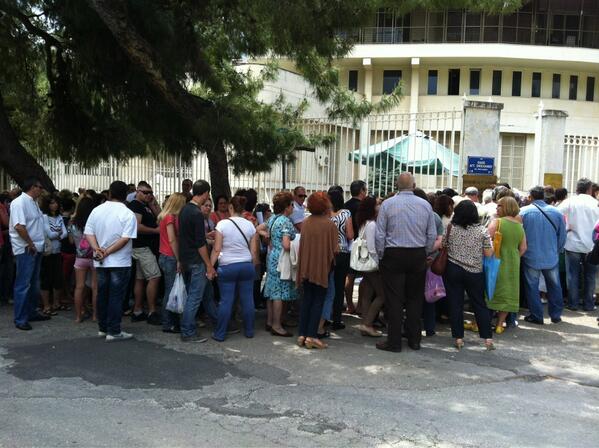Photo: Picasa/ Kristina Belikova
Anastasia Balezdrova
Ten days before the European elections it is not yet very clear whether there will be a polling station in central Athens or not. Citizens are continuing to insist on moving at least one of the three polling stations that will function at the Embassy of the Republic of Bulgaria to one of the Bulgarian schools in the area of Omonia Square. Their argument is that the Embassy is located in a remote suburb that is inaccessible by public transport. Furthermore, they believe that this will increase the voting activity, as they will anyway visit Omonia during their rest day.
It however seems that despite the active comments on the social network Facebook none of them has contacted the diplomatic representation of Bulgaria to make such a request. Commenting for GRReporter, sources from the Embassy state that they have not received such a request either by telephone, or in writing, including in recent days.
"Interestingly, even the applications sent by those who have expressed their desire to vote do not indicate a voting place other than the Embassy," they said. According to them, only the Bulgarians, who live and work in the region of Chania on Crete, have replied to the e-mail sent to inform them that they can request the opening of a polling station at a place different from where they voted in the parliamentary elections on 12 May 2013. As a result, a polling station will be opened in Gerani village, where the majority of them reside.

"We sent a letter with the same content to all Bulgarian associations in Athens in early April. We did not receive any reply regarding the places where they would like the polling stations to be opened," said the Embassy. On their part, the initiators of the idea of opening a section at one of the Bulgarian schools in central Athens insist on that happening now. They refer to the resolution of the Central Election Commission that the decision on the location of the polling station should be taken by the heads of the diplomatic missions based on the territorial location of Bulgarian communities.
Commenting for GRReporter, the Embassy representatives however were reserved about the possibility of meeting the requests of the Bulgarian citizens for moving one of the three polling stations. One of their main arguments is that the procedure to organize the process and inform the Greek authorities requires more time than the time remaining until the European elections.